Seville is a big city that welcomes a lot of tourists all year long. Many people know the “main” tourist path that the book guides advise but fewer have discovered the “hidden” corners of the Andalusian capital. Here is a list of 7 places, not all hidden, but all typical and of course, beautiful.
Even though this place is in the centre of Seville, you can only discover it thanks to a local or to your curiosity. Indeed, this is a small but beautiful circular place with a little fountain where a market takes place during the week. It’s really peaceful and amazing.
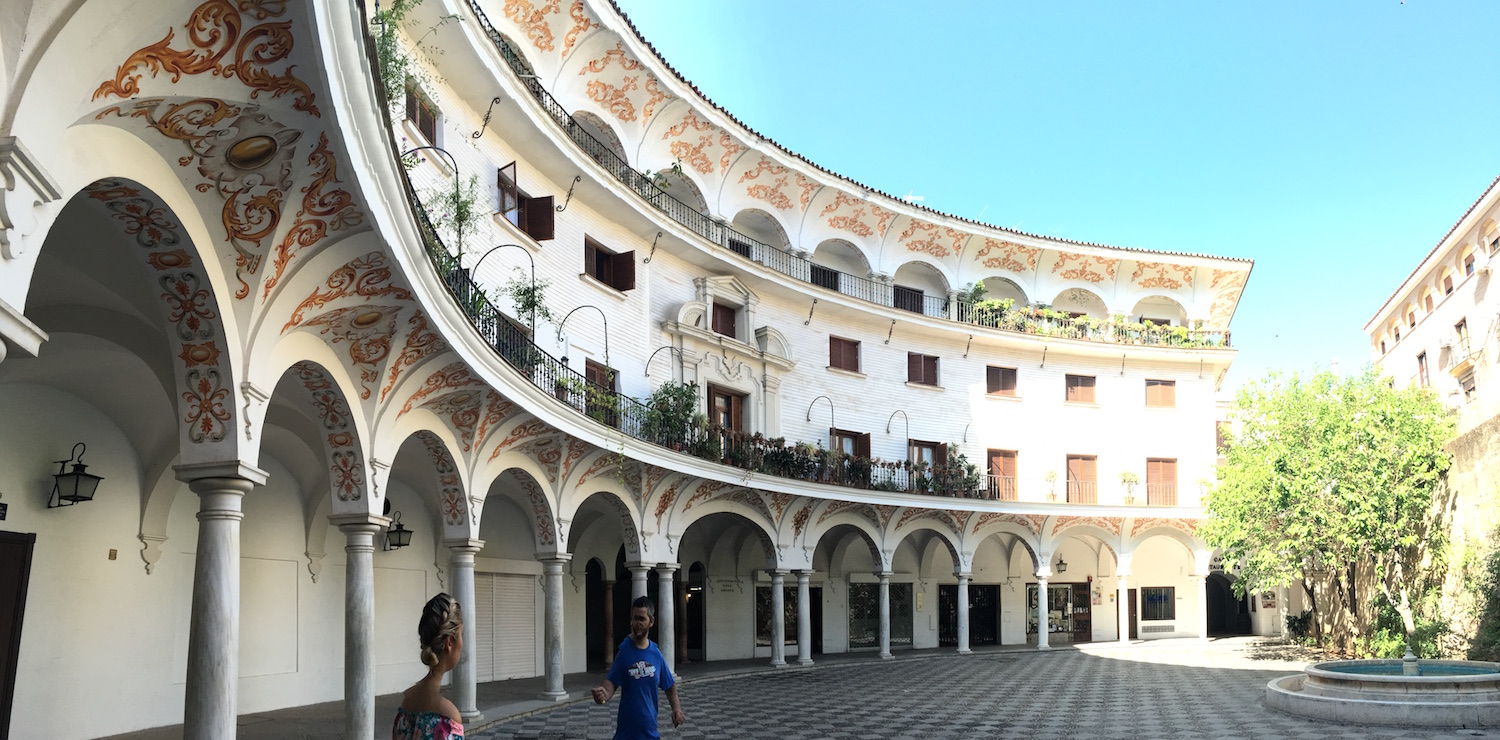
The Santa Cruz district (former Jewish district) is known for its authenticity and narrow streets. Wandering around you’ll find some lovely places and among them, the Plaza Doña Elvira. It is said to be like a small village in a big city as it is a peaceful and calm place.
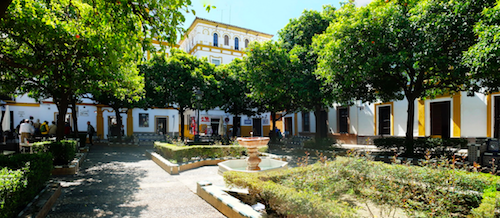
This is located in the “original area” of Seville. These are two romans pillars with a Hercules statue on top of each of them as he is believed to be the founder of Seville according to an old legend. Not only the pillars are impressive but the bars and restaurants that surround them are great. It’s a perfectly typical place to eat or to have a drink.
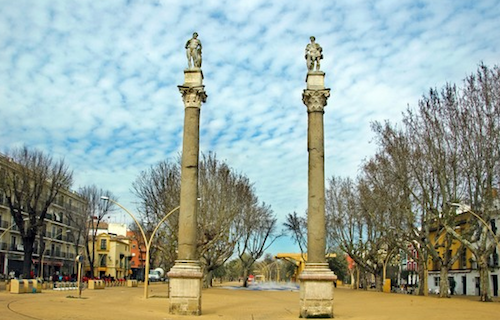
This is not an actual place but a whole district. It’s far less touristy but as beautiful as the rest of Seville. If you have time you should wander the streets, no map needed, only your curiosity will do.
Casa de Pilatos (Royal Ducal House of Medinaceli)
This is an Andalusian palace located in the city centre but not always visited by tourists. It still currently serves as a permanent residence of the Dukes of Medinaceli. This 15th palace has a Renaissance architecture and can be visited privately. It’s worth it! And if you’ve seen Laurence of Arabia maybe you’ll recognize the place…
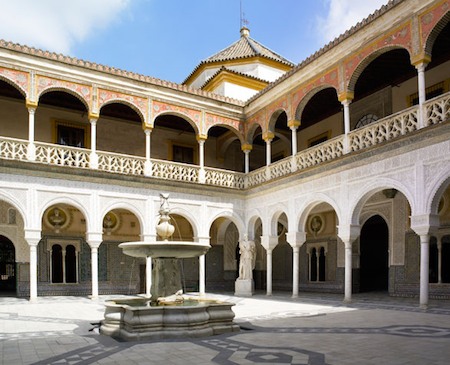
This is a very curious place that I wouldn’t have known if one of our guide didn’t show me. It’s a current convent where nuns can only be seen through a wooden door once you ring the bell.
This is the most famous Seville entrance which was originally built in 1107 and renovated in 1573 by the Arabs. During the Semana Santa (Holy Week), processions pass through the gate.
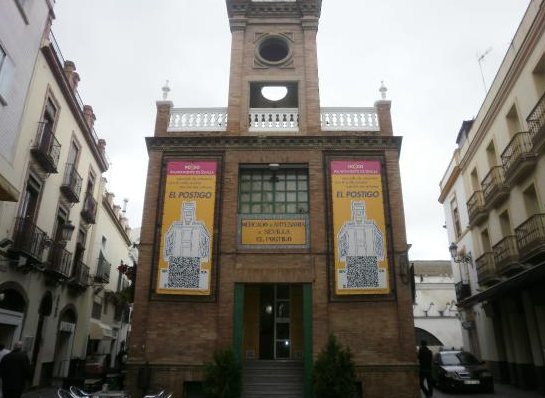
In English we’d call it the Royal Shipyards, it was built in the 13th and is located near the Postigo. Until the 15th century they were used as dry docks but the ship structure became too big. It then became a depot, market and a military place. Nowadays it belongs to the Regional Government.
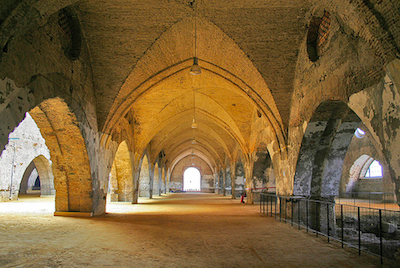
Seville being the Andalusian capital, the Parliament belongs there. It’s also known under the name of the Hospital de las Cinco Llagas and is located near the ancient city walls in Macarena district. It’s a former hospital which was then abandoned and restored in 1992.
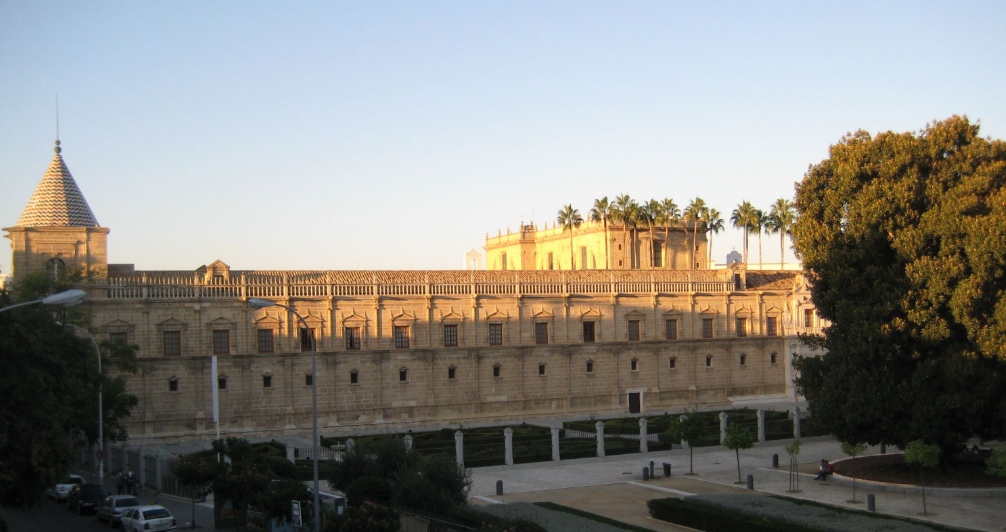
Baths of Doña Maria de Padilla
This place is located under the Real Alcazar Palace. Its name doesn’t correspond to its purpose as they are neither baths nor belonging to Doña Maria Padilla. They are in fact rainwater tanks storing water for the Palace gardens but it’s a beautiful and uncommon place!
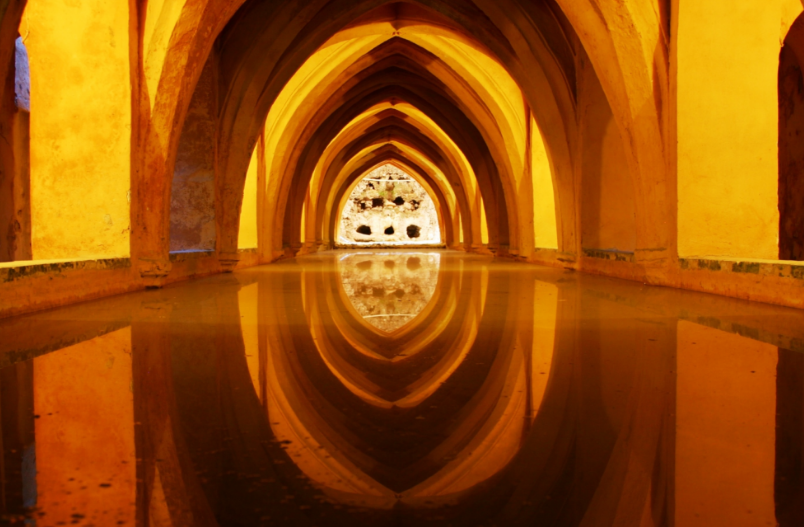
And of course to learn more about Seville wonders and stories, book a tour with our professional guide and you'll be the city expert!